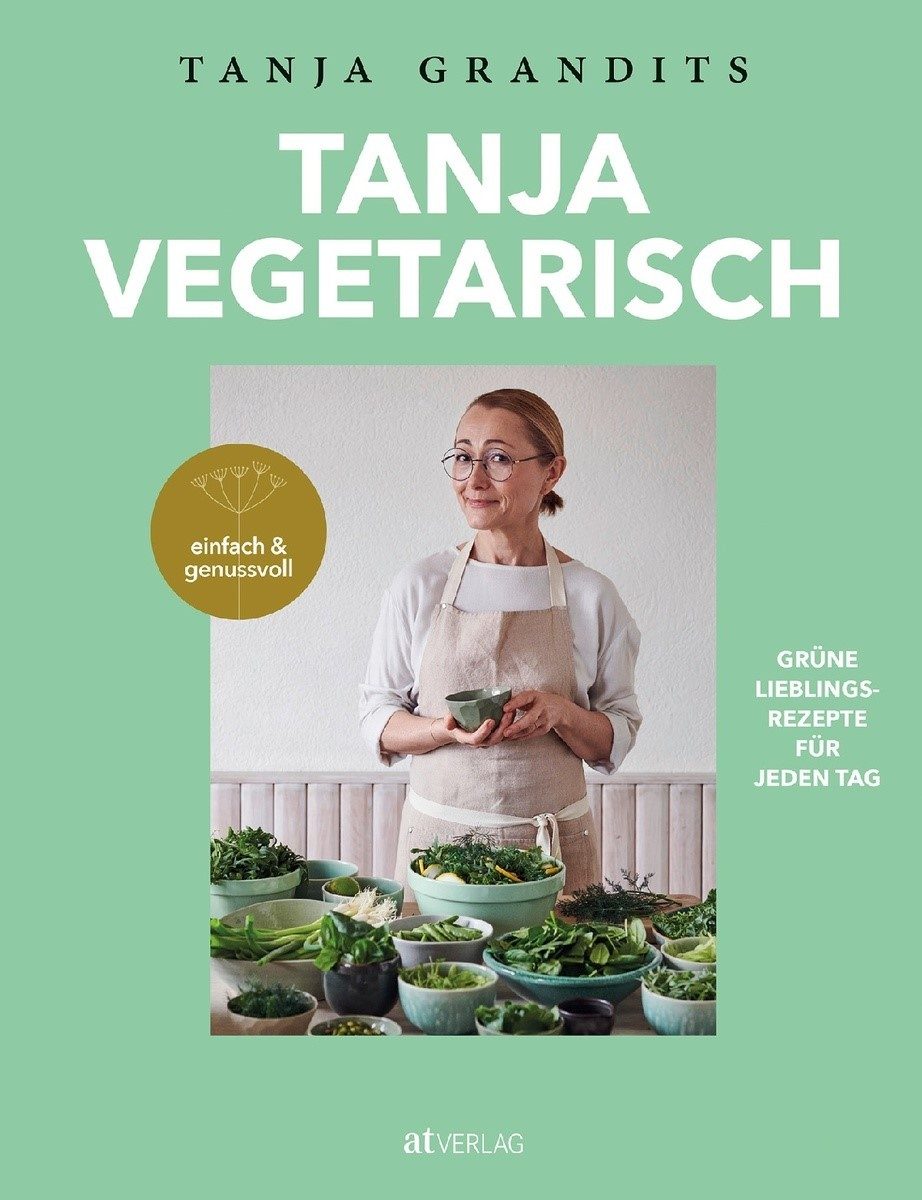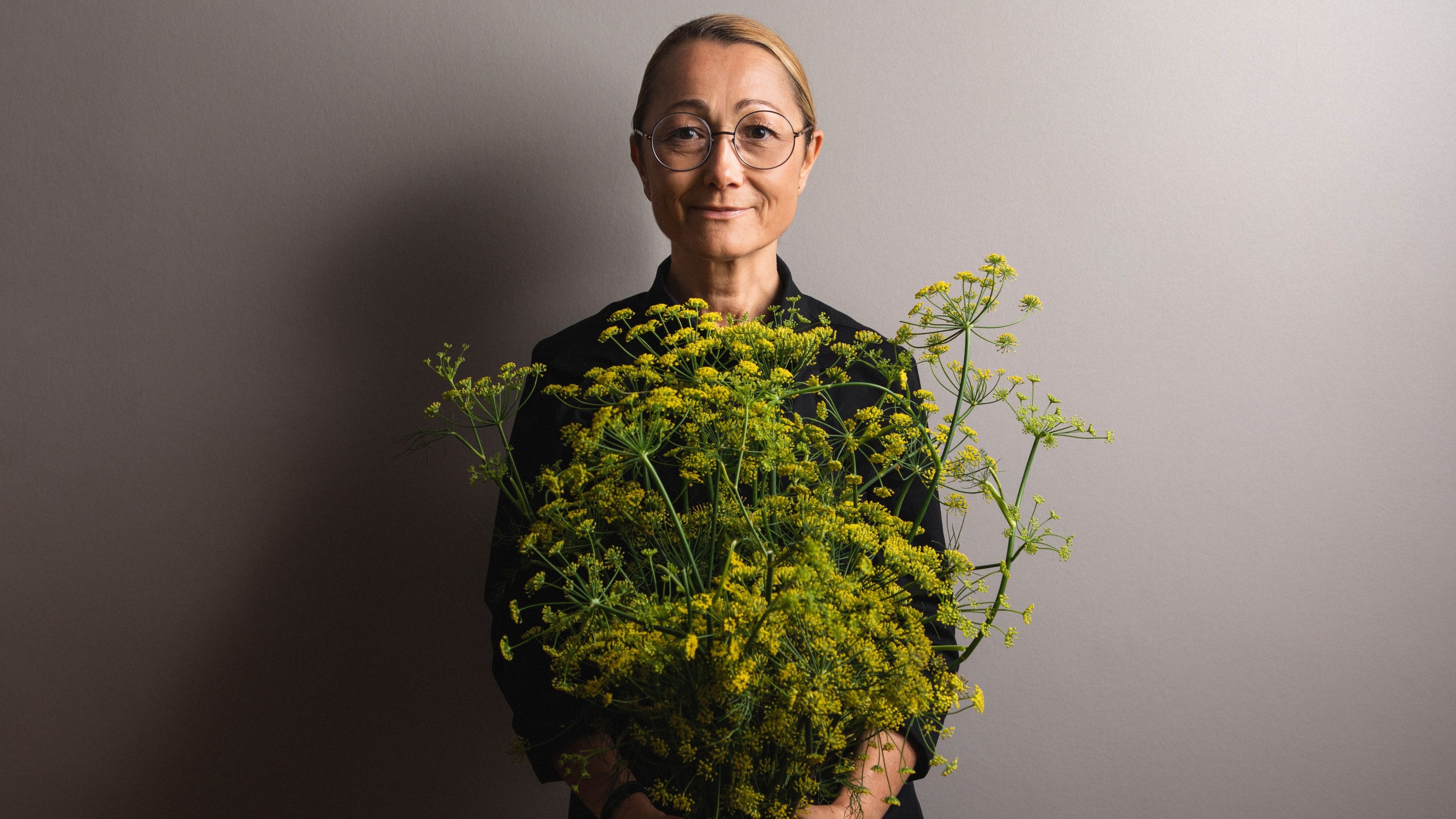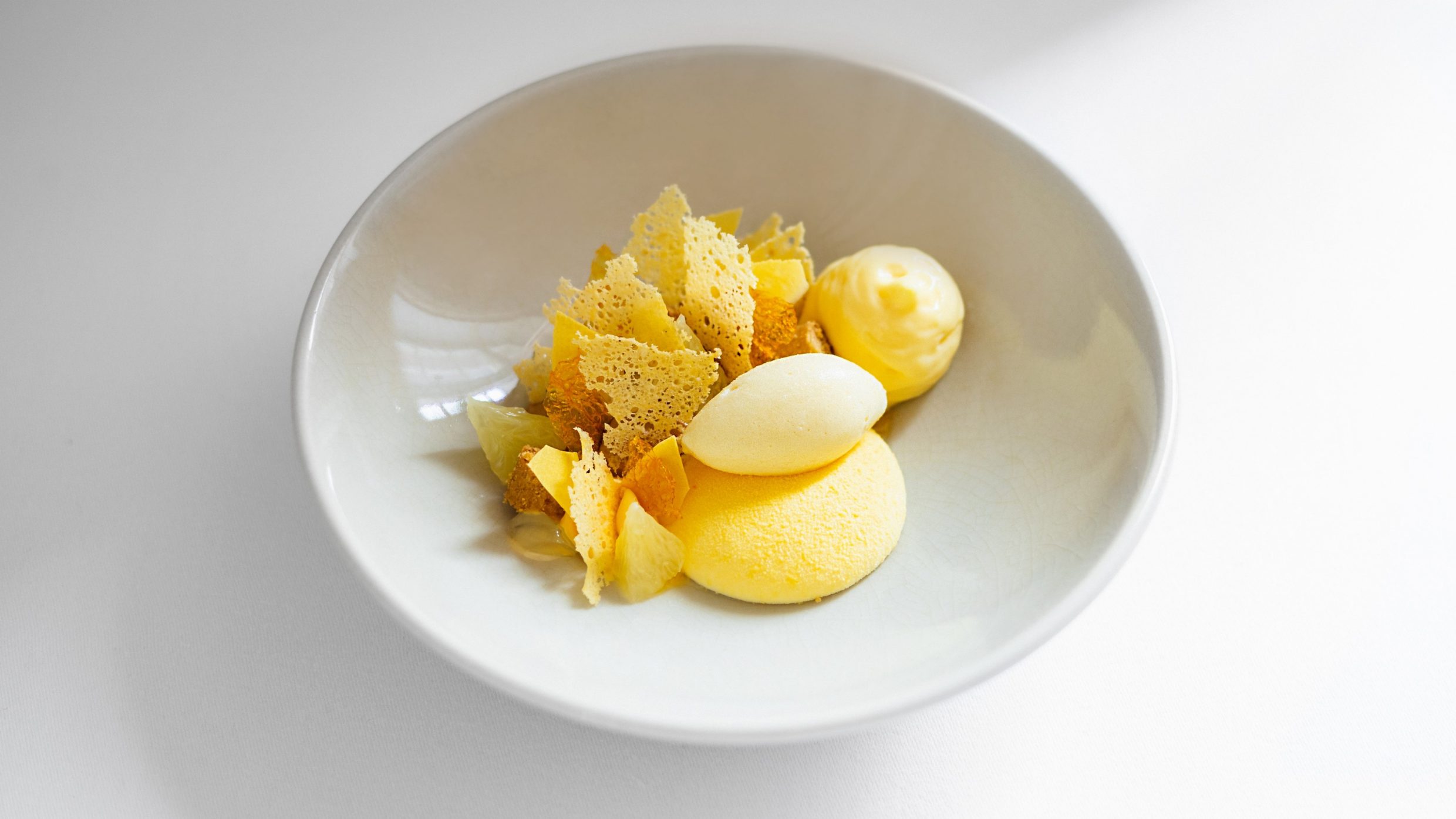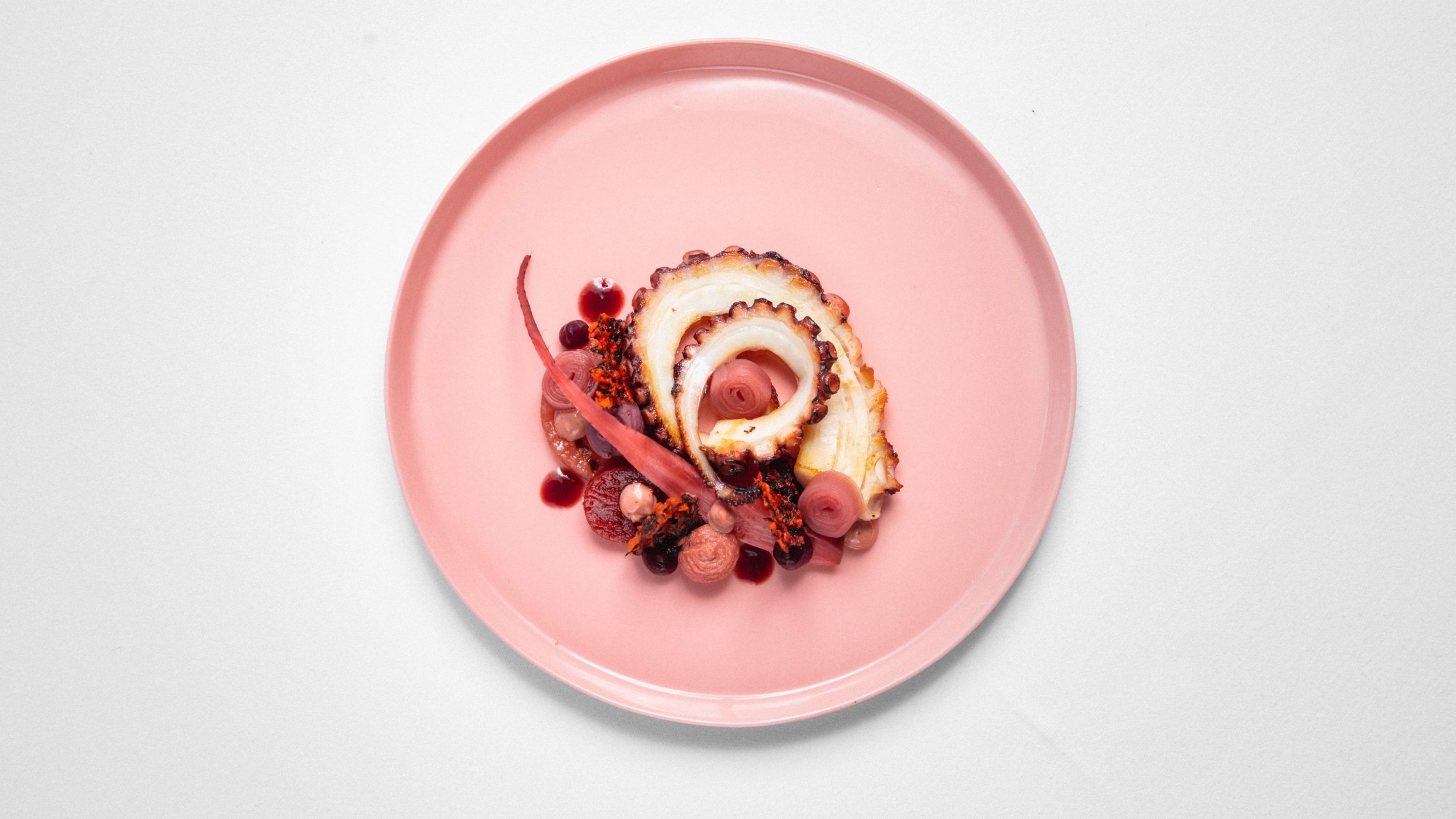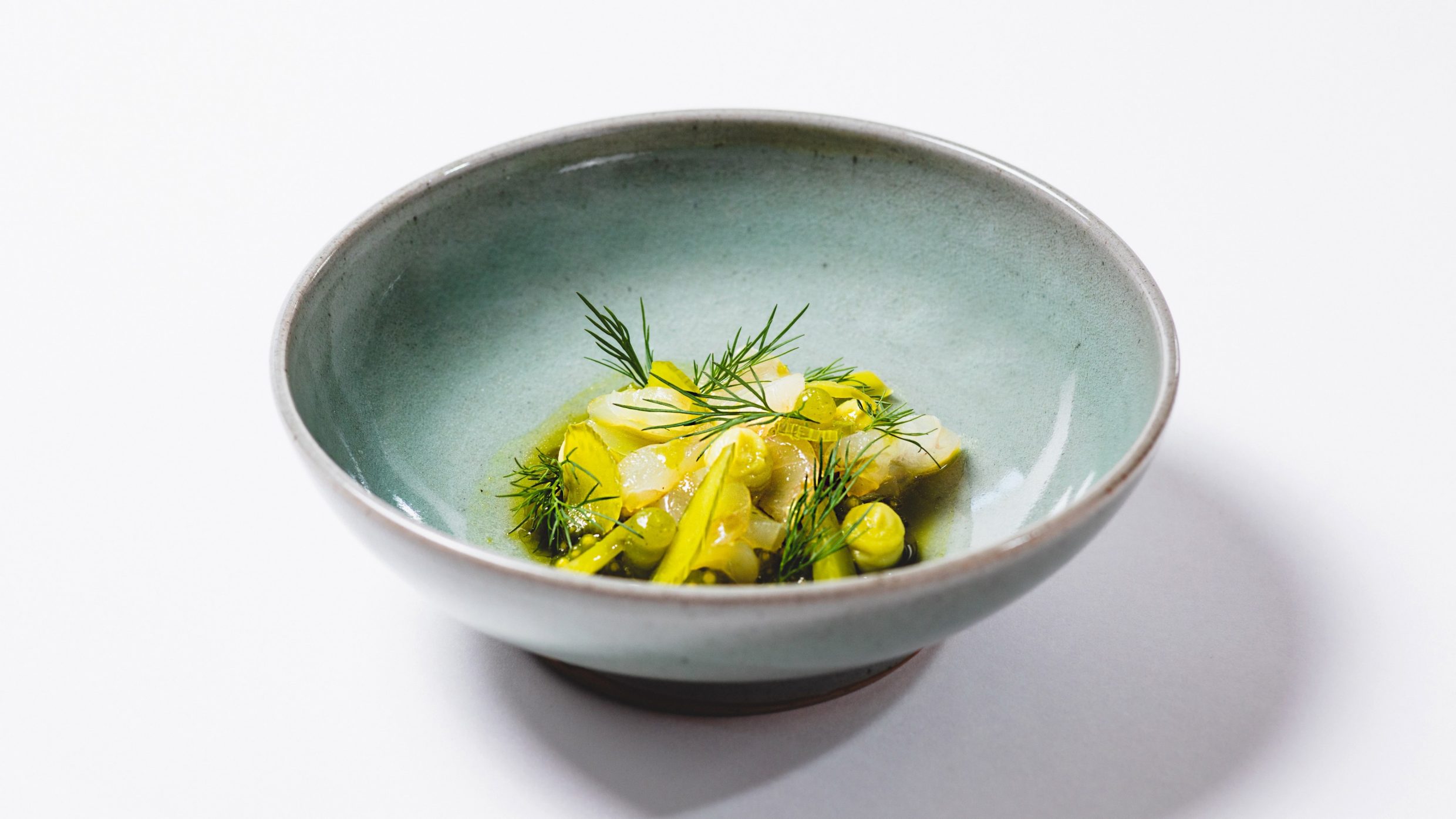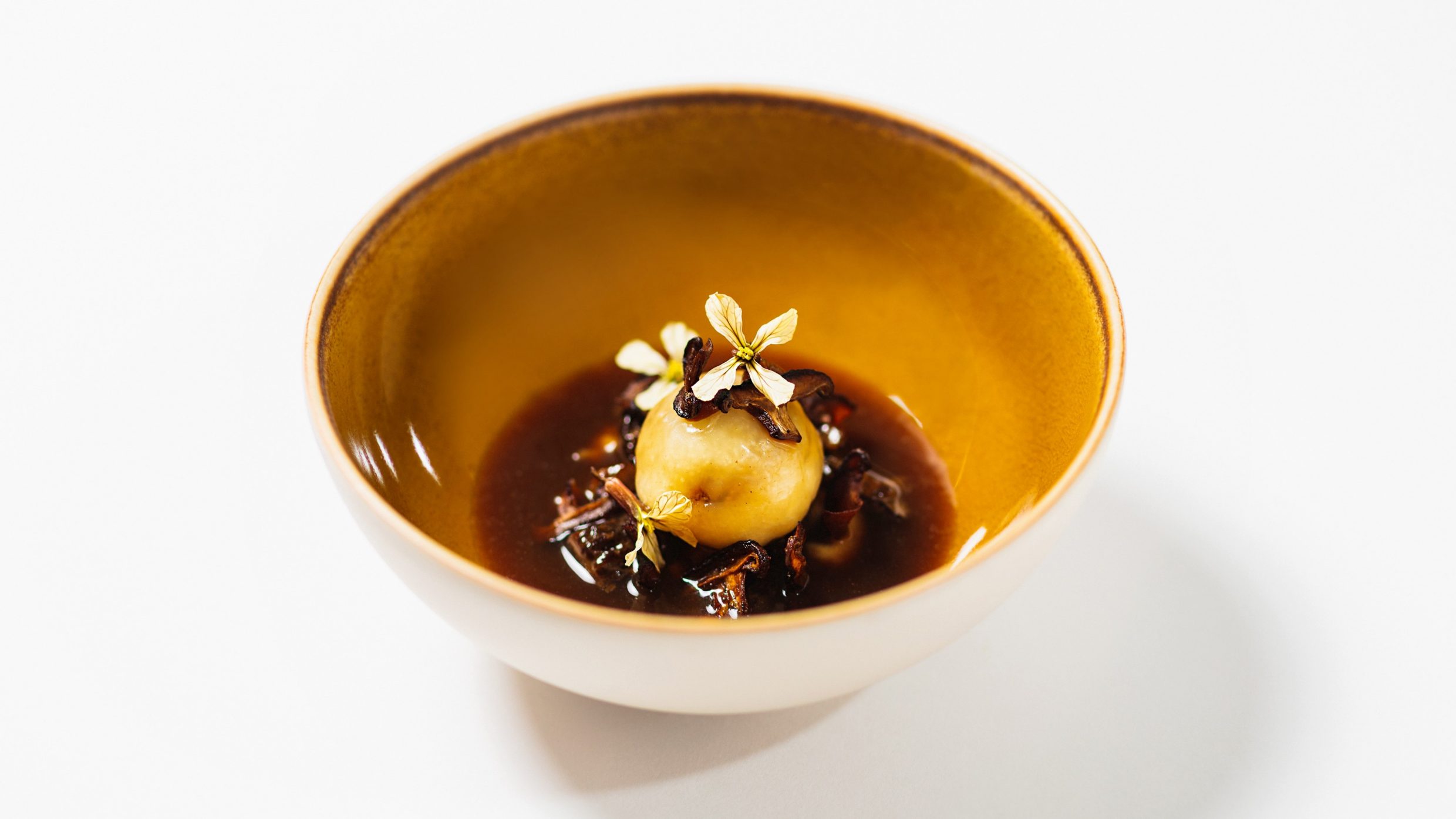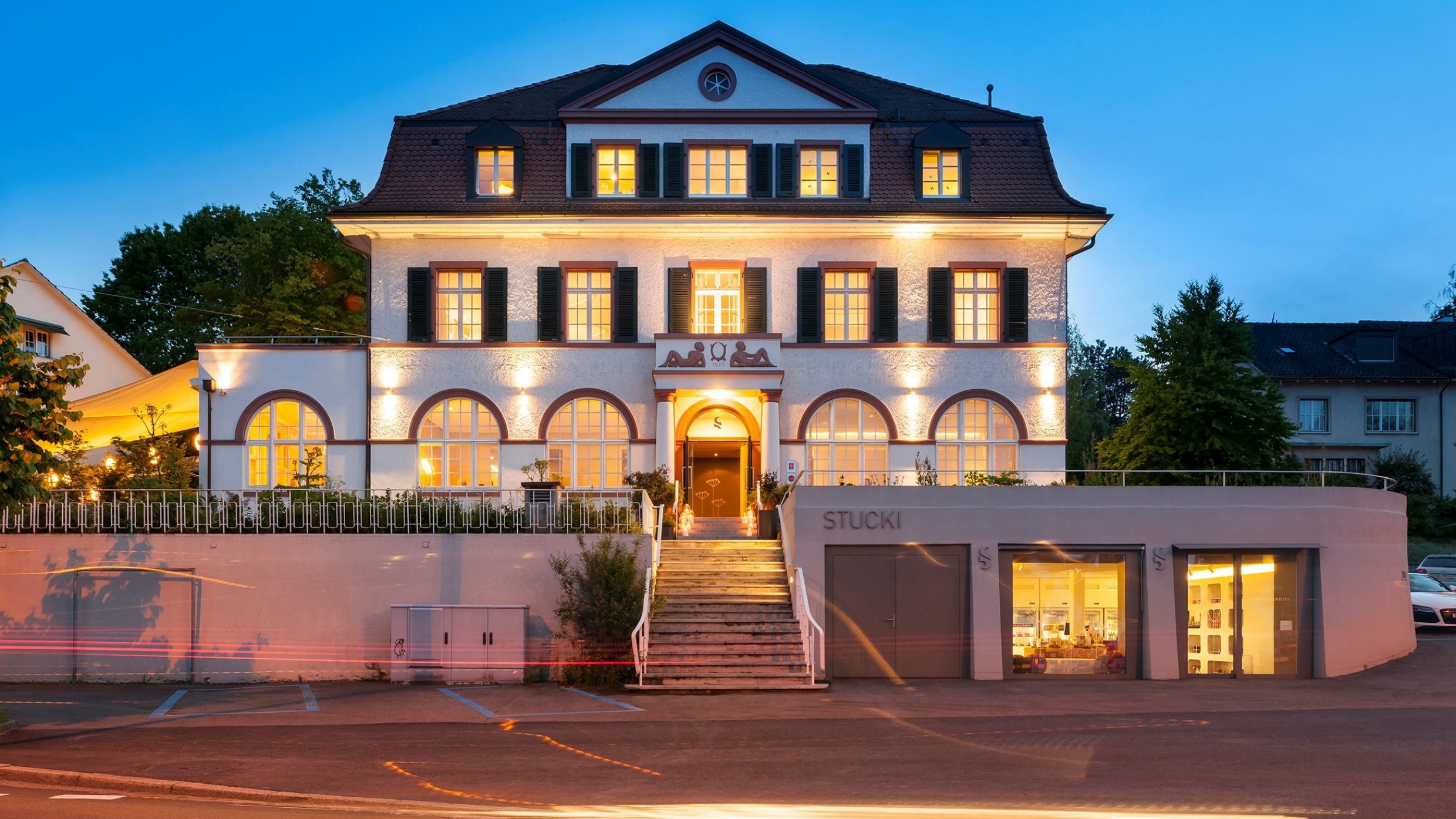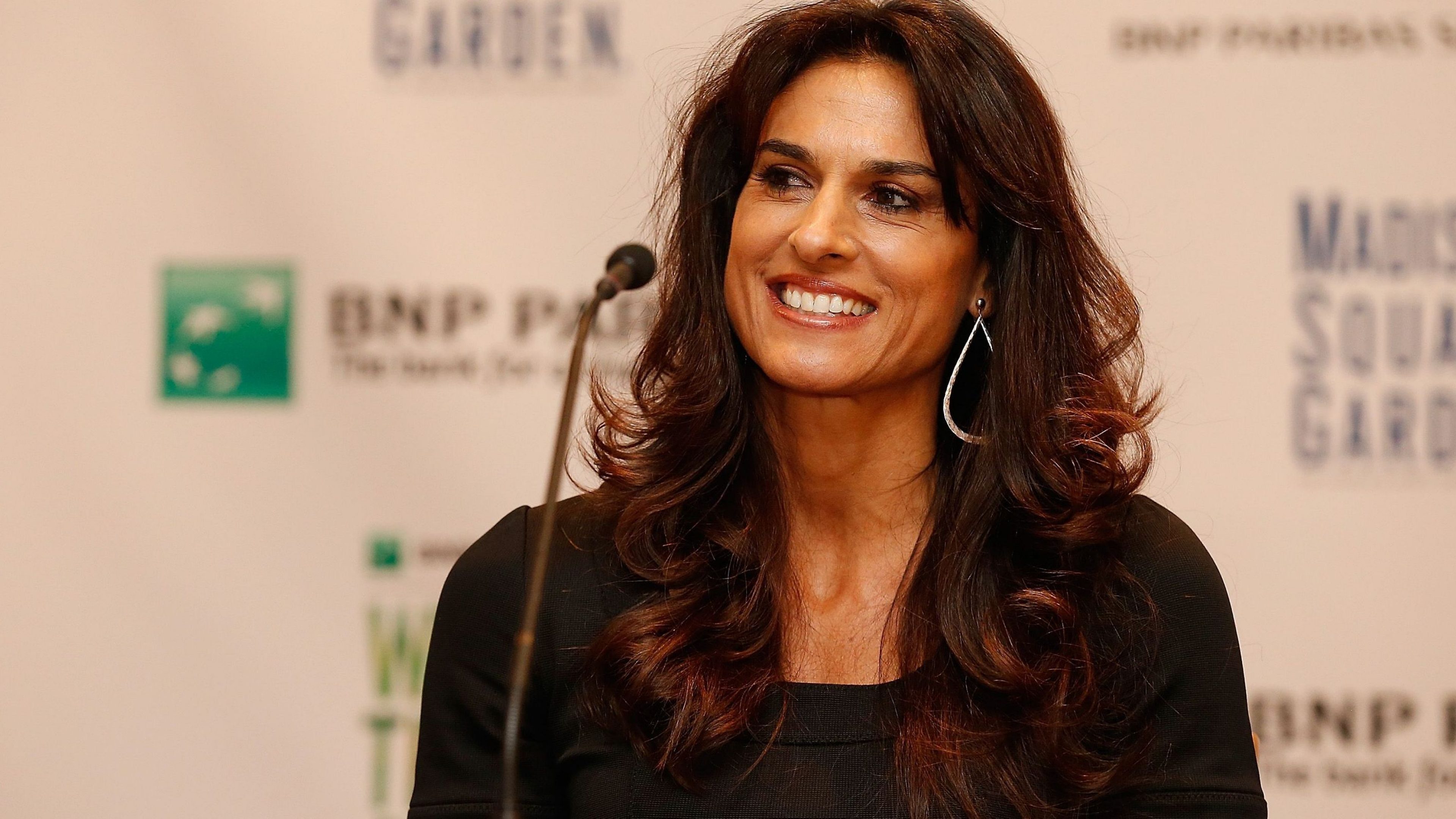High-end gastronomy is hard work, and women are still the exception in this field. With 19 GaultMillau points and two Michelin stars, Tanja Grandits of the “Stucki” restaurant in Basel is one of the world’s best chefs. A conversation about self-determination in the kitchen, the vegetarian boom and the religious cult surrounding food.
You were voted Swiss “Chef of the Year” last year. Then along came the coronavirus. Instead of a record year, an economic disaster?
We were booked up until May and then the lockdown came in mid-March – that was quite tough. But all in all, thanks to an excellent summer, we got off lightly. I tried to make the most of this year. During the lockdown, I worked for nine weeks in our little shop next to the restaurant, cooked take-away meals and had pleasant encounters with people from the neighbourhood who had never eaten at the restaurant. Besides that, I finished my new cookbook.
You won the award in 2014 – as the first woman in history. Do you also see your successes as a victory for equality?
From the reactions I realise that I’m a role model for many women. But to be honest: I’m not the type who goes through life and thinks I have a handicap because I’m a woman or I’m small or I’m from southern Germany. Nor have I ever felt professionally disadvantaged. My motto is: “Don’t whine, or you’ll stop moving.” I just do what I like. This has always been natural for me.
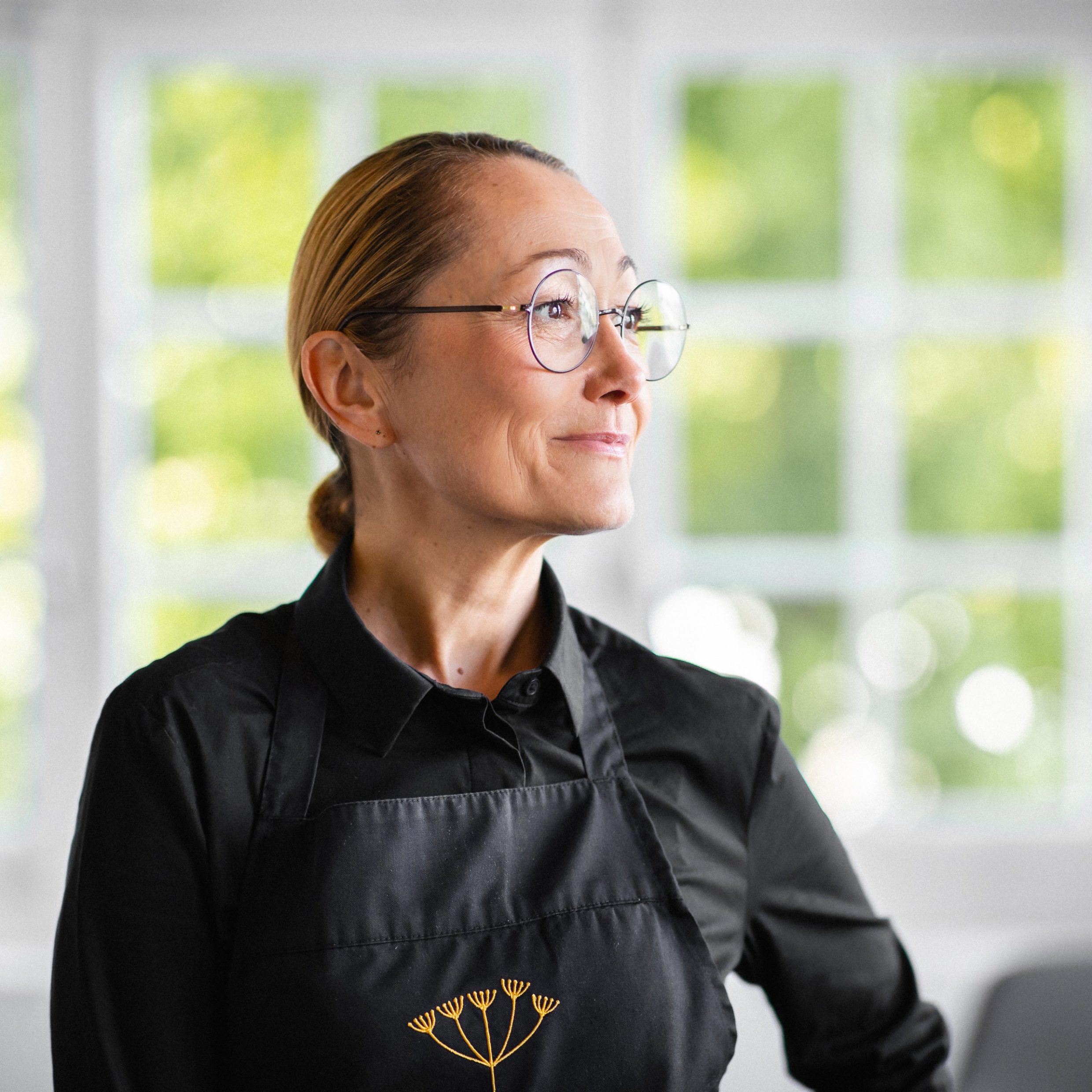
Where does this desire for self-determination come from?
I’ve had it since I was a kid. I have plenty of confidence, I live very much in the moment and I’m happy with my life. I grew up with a lot of freedom. My mother loved me the way I was. She always let me get on with it and encouraged me to try new things.
Your kitchen is also very unique, for which you coined the phrase “aroma kitchen”. How would you describe your style?
The craft – the way we prepare the base or the sauces – is classic French. The cuisine is rather light, with influences from different regions of the world and the spices, herbs – or aromas – are very important. I love strong aromas, I like full, round flavours and I like salt.
Your dishes are special in optical terms too. Each course consists of a single shade. Why are colours so important to you?
They create harmony, and the taste comes more to the fore. All yellow things, for example, taste fantastic together, such as apricot, buttermilk and camomile – a heavenly combination.
You grew up in simple circumstances with Swabian home cooking, where “probably too much was eaten, especially sausage and bacon, fatty food and pork.” Your new cookbook is called “Tanja vegetarian.” Have you converted?
Not radically. But for my daughter Emma and me, I’ve been cooking practically only vegetarian for many years. Not primarily out of conviction, but because we like it best.
Which vegetable is the most versatile?
Spinach. It tastes good as a salad, as a soup, but also as a filling for ravioli or as a feta and spinach pie. And if you don’t have time, it can also be prepared in a matter of seconds: steam the spinach in brown butter and garlic briefly, add a little sesame oil – that’s it. It’s delicious.
Will meatless cuisine also become the “new normal” in high-end gastronomy?
I wouldn’t go that far. But the fact is: the pandemic has led to a vegetarian surge. We used to have one order for a vegetarian meal per evening, but today there are five or more. During the lockdown, people became more aware of the importance of fresh, healthy food for their well-being and had more time to cook. According to statistics, up to 30 percent more vegetables were bought in Switzerland. In addition, the meat processing plant scandals raised awareness of the terrible factory farms. All this fuels the vegetarian boom.
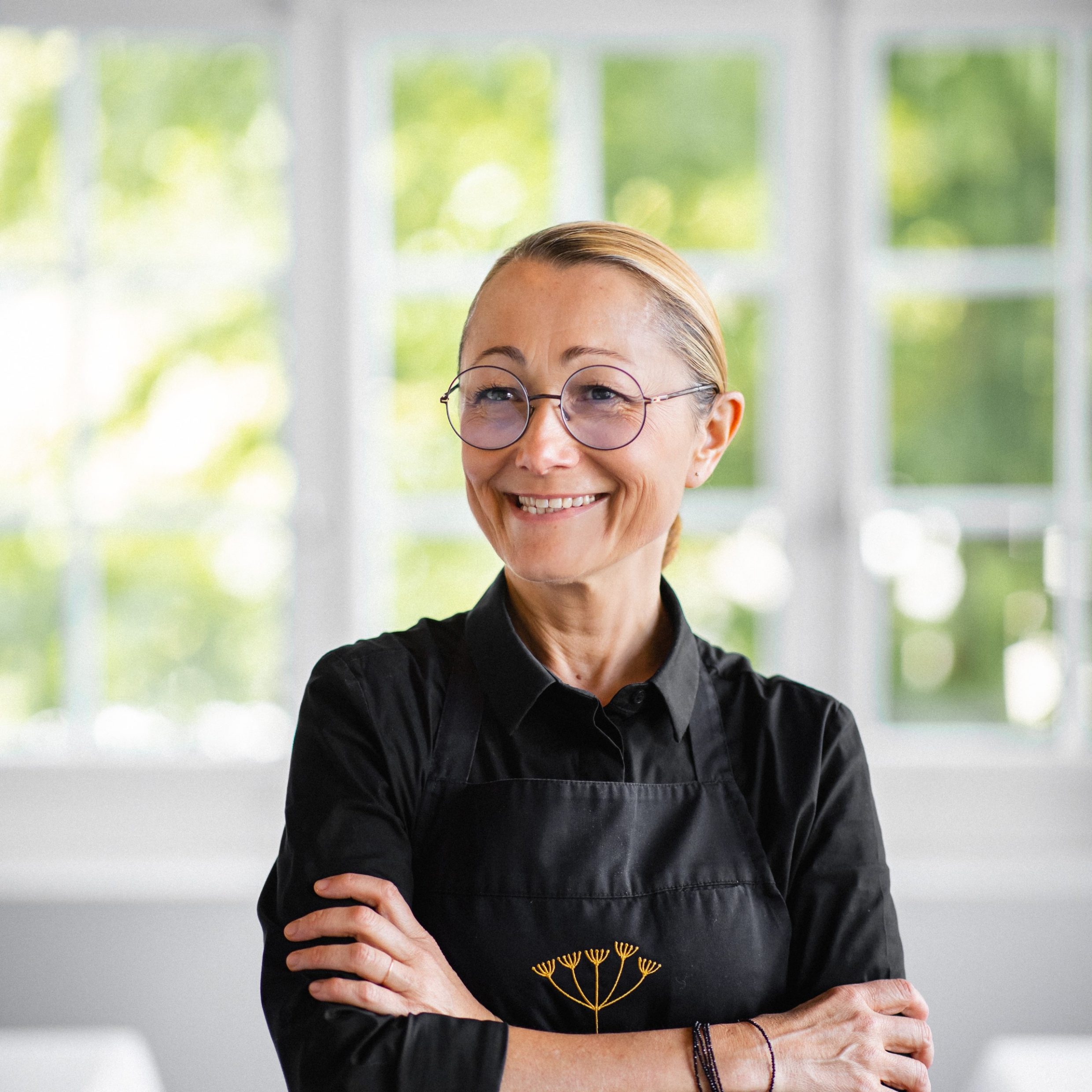
High-end gastronomy is a performance sport and the higher the rating, the greater the pressure appears. Are you tormented by the constant fear of being downgraded?
Of course it adds pressure, but I can handle it. I live completely in the here and now and don’t waste any thought about losing something. I want to pass on my joy of eating and inspire people.
Do you lose some of your creative independence because you have to follow certain trends?
Not really. Trends are also over very quickly. I don’t suddenly cook ultra-regional food because that’s what everyone else is doing. Of course, most of my ingredients are regional, but I don’t want to do without ginger, limes or olive oil. I also serve only one amuse-bouche and not half a dozen, as has become fashionable in many places. If you eat too much before the actual meal, you can’t really enjoy the many flavour combinations that are still to come.
The military term “kitchen brigade” sums it up: kitchen teams are considered to be strictly hierarchical and tightly organised. How much self-determination do your two dozen employees actually have?
My role is more that of a cheerleader than a boss. Of course I chart the course, but I see us more as a family and believe in individual responsibility and self-determination. My closest employees are experts in their respective areas and I allow them a lot of freedom. The reward: they remain faithful to me. I’ve been working with chef de cuisine Marco Böhler for twelve years.
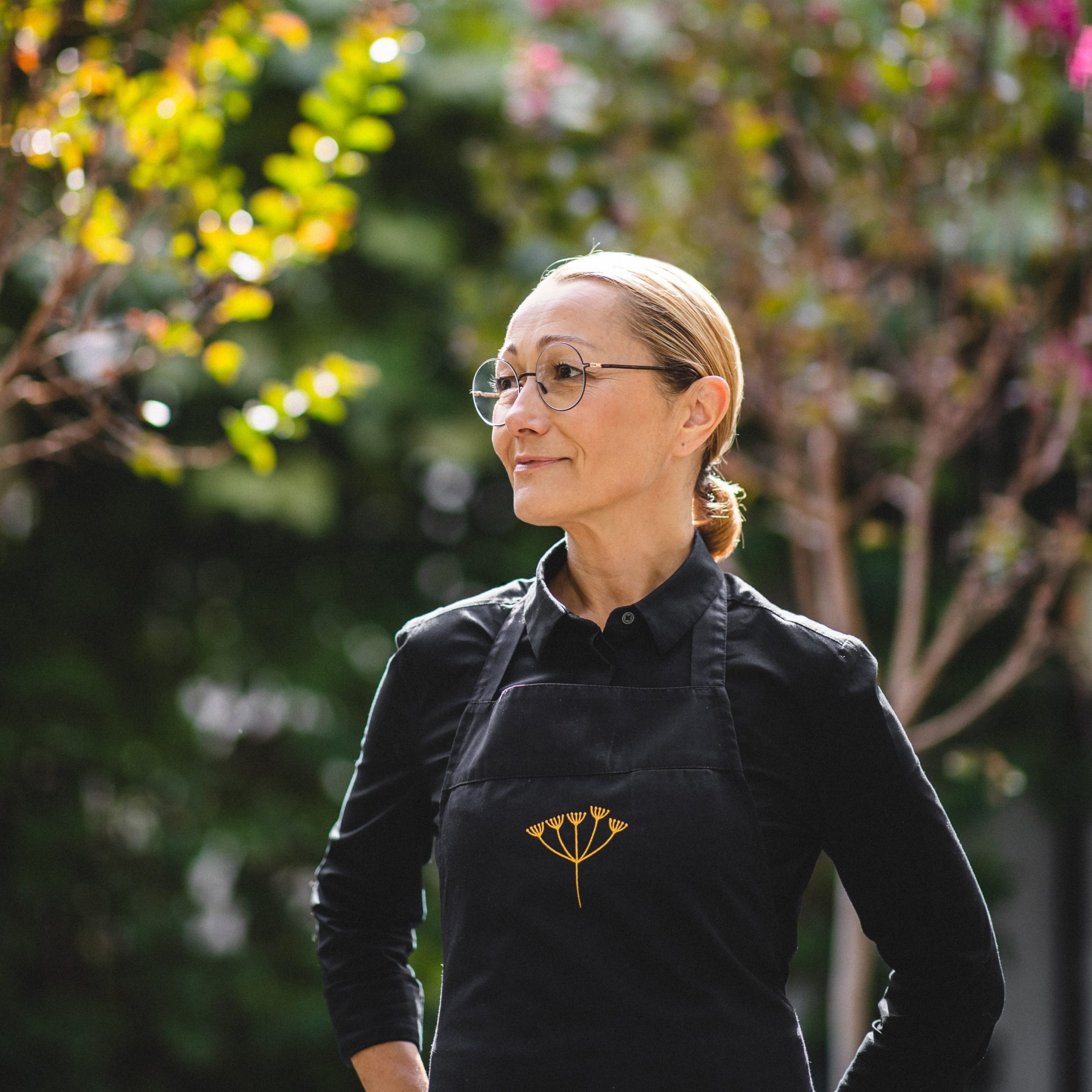
You started studying chemistry and only completed your cooking apprenticeship when you were 26. Now you’ve been self-employed for 20 years. During this time, a veritable food cult has emerged: never before has there been so much discussion, posting, liking.
Perfect timing! The interest is really enormous and of course we benefit from it. If this trend leads to less junk food being eaten and people eating healthier and being more willing to experiment with food, that’s great. What is worrying, however, is when the subject of food becomes a minefield. For many, it drifts into the religious sphere.
In what sense?
The culinary aspects are massively increased in some cases and for some it is only about perfecting the body. But if we abandon important nutrients because of dogmas and prohibitions, then this is not only unhealthy: the most important thing about food – the enjoyment – is also lost.
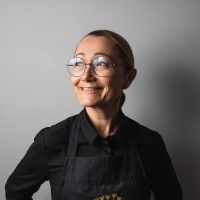
Tanja Grandits
Tanja Grandits (50) has been head chef at Basel’s top restaurant “Stucki” since 2008. The Guide Gault Millau awarded her cuisine 19 points, the Guide Michelin 2 stars. In 2014, she was the first woman in Switzerland to be awarded Gault Millau “Chef of the Year.” In 2020, she received the award for the second time. In the same year she published her seventh cookbook “Tanja vegetarisch” (AT Verlag). Tanja Grandits grew up in southern Germany and lives with her daughter in Basel.
